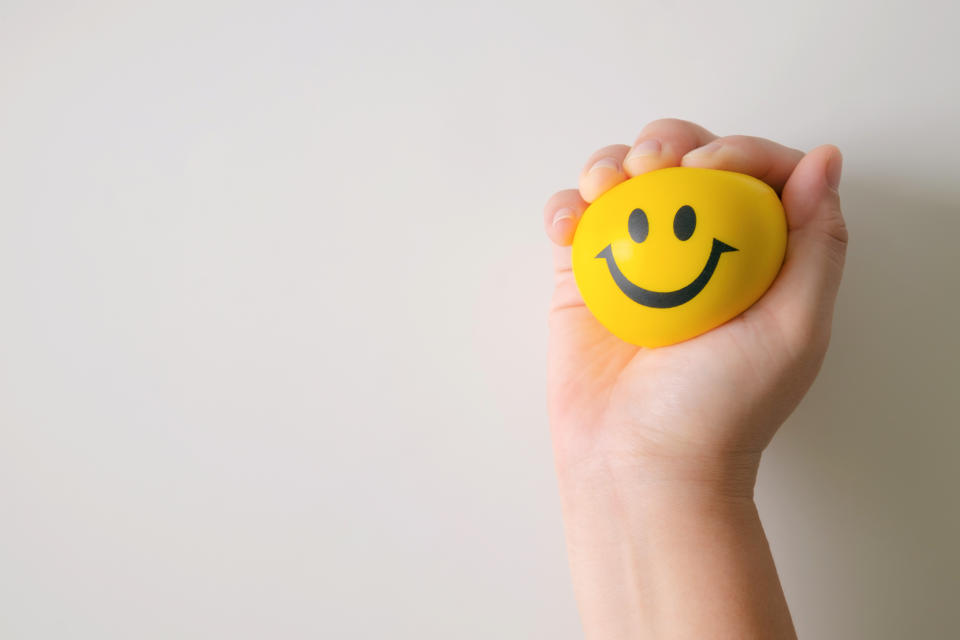How to handle a panic attack at work

In the middle of a normal day at work, Claire* suddenly felt overwhelmed with intense anxiety. The office seemed airless - like the room was physically getting smaller - and she felt like she couldn’t breathe.
Her heart raced and she felt disorientated, dizzy and nauseous. Deep down, she knew she wasn’t dying - but it felt like it.
Six months ago, Claire’s company began to make redundancies and her workload dramatically increased. It was around this time that she began to experience panic attacks - on public transport, at home and at work. “I hid them from my colleagues and bosses because I was afraid of being laid off myself,” she says.
“I’d go to the toilet or outside when I thought I was going to have a panic attack, and then I’d come back in and pretend everything was fine.”
After months of dealing with panic attacks in secret, Claire went to her GP who referred her to a therapist, who helped her work through her anxiety. In general, panic disorders are treated with either psychological (talking) therapies and medicine, or a combination of the two.
But if you’re struggling with panic attacks at work, there are some steps you can take too.
Fight or flight
Panic attacks are linked to our fight or flight, and the release of adrenaline is what causes the symptoms we experience,” says Counselling Directory member Amy Drake.
“This response is useful when we are faced with a potential life threatening situation, yet we face more and more stressful everyday threats in our work life or home life, that our brains and bodies react to in the same way as if we are presented with a danger.
“If we can identify when our panic attack is about to start, we can put things in place to try and prevent it,” she explains.

“If you are not already sitting down, do so and try and have a window open in the room you are in. If someone can grab you a glass of water that will help too and it can often help to have them with you to reassure you this will pass.
“If you then start to experience the attack it's important to remember to remain calm, that will go a long way towards overcoming it quicker,” Drake says.
“Firstly, we need to get our breathing under control, and a method that I find useful is the 4/7 method. Take a big deep breath in for four seconds, and release that breath over seven seconds. Repeat this at least four times, or as much as needed, and this will help to regulate your breathing again. Once you feel your breathing start to slow, your other symptoms should naturally ease too, such as sweating or feeling nausea.”
READ MORE: Why women are penalised for getting angry at work
Recognise the triggers
After the panic attack, Drake advises trying to identify the cause of the panic.
“Was it something stressing you at work? If we can highlight this, then we can put measures in place to possibly prevent it from happening again,” she says. “Once we feel the panic has passed, familiarise yourself with your surroundings just to ensure you feel settled, and it’s okay to return to your work.
“If you feel as though you need to seek support, talk to either a qualified mental health first aider within your organisation or simply talking to a friend or a trusted colleague can help. If you can identify that you have been experiencing panic attacks often, and believe work could support you, talking to your boss can help. If you find that you are avoiding things for fear of the next panic attack, seek professional help because theres a chance you might be experiencing panic disorder.”

Try to avoid daily stresses
Taking measures to reduce day-to-day stress can also help, too. “There are things that you can do day to day, such as eating healthy meals to keep on top of your physical health, and getting regular exercise,” Drake says. “If you are finding that you are experiencing increased panic or anxiety, then avoiding caffeine will help as this is known to contribute and make panic worse.
“It might also be a good idea to incorporate some simple breathing exercises into your routine, or even use them before a stressful event or meeting for example,” she adds.
“This will help to not only keep your breathing regulated, but it can also help you focus and feel more at ease.”
*Names have been changed to protect identities.
READ MORE: Slow down, get better: how to be mindful in the workplace


